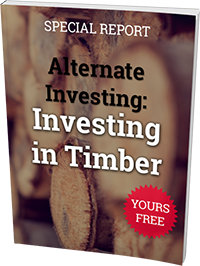As I write this, I am on the Eurostar train whizzing back from Lyon, France’s “second city,” to London. I’ve just spent a few days touring Bourgogne (Burgundy) — arguably the center of the most exclusive wine region in the world.
It also gave me a chance to read and watch the local media in a country that many Americans may visit, but few would ever invest in.
Today, the French economy is in a funk, a blot on the euro zone’s economic recovery, despite the economy expanding by 0.6% in Q1 following zero growth in the previous quarter.
Not surprisingly, the educated French are voting with their feet. Thanks to the French socialist government’s policy of charging income tax to high earners of up to 75% until December 2014, London is now chock-full of French expatriates. In my London neighborhood of South Kensington, you hear French almost as much as you do English. And as I saw on my last visit there, Silicon Valley is also chock-full of French engineers.
Things looked a lot different in 2007 when French voters gave the son of a Hungarian, Nicolas Sarkozy, a sizable mandate to pursue market reform.
Opponents of Sarkozy derided him as an “American conservative with a French passport.” Libération, a left-leaning newspaper, described him as “Thatcher without the skirts.”
As well-known left-wing commentator Bernard Guetta noted on French radio:
Almost 30 years late… France has at last taken the liberal turn that Margaret Thatcher and Ronald Reagan gave the world. Others will say that after three decades of resistance, France has been caught up by international change — the retreat of the state and the pre-eminence of the market, which it could no longer avoid. Some are rejoicing, others are deploring it but the fact is there.
Well, the left got its wish.
Five years later, Sarkozy was ousted and France lurched back to the left after the election of socialist Francois Hollande in 2012.
And France’s economy is paying the price…
The Surprisingly Productive French
Take politics and economics out of the equation, and France does have a lot of things going for it.
Most obviously, the French are remarkably thin and healthy-looking. This despite the fact that smoking has not gone out of style. The women are elegantly dressed. We Americans and Brits look positively frumpy in comparison.
The trains run on time. And they are fast as heck. The distance between Paris and London is about 307 miles, and it takes about 2 hours and 15 minutes to travel between them. That’s roughly the distance between Philadelphia and Boston — and what is at best a five-hour train ride.
Stores, at least in small towns, are more often closed than open. You have to organize your day around the few hours you’ll actually find someone available to sell you something. It is almost as bad as trying to get the attention of the smoking and bantering waiters at a restaurant.
With this kind of work ethic, you may be surprised to learn that France is one of the most productive economies in the world.
I suspected that was because they get a lot more done in the few hours that they do work.
Statistics confirmed my suspicion. In 2013, output per worker in France was 13% higher than in the United Kingdom. But because Brits work longer hours than the French, on a comparison of Gross Domestic Product (GDP) per hour, the difference jumps to a whopping 27%.
Output per hour worked in France was roughly on a par with Germany and just below the United States. The French just choose to work a lot less.
Entrepreneurship in France
George W. Bush once joked that the problem with France is they don’t have a word for “entrepreneur.”
One of France’s most telling failures was the Minitel — a government-run early precursor to the Internet that first rolled out in 1978. Yet in France’s highly regulated environment, the Minitel was never able to capitalize on that first mover advantage and it folded in 2012.
I once heard an American venture capitalist observe that the best investment opportunities in France stem from offering solutions to work around government incompetence.
I came across just such an example during my short stay there.
The website of France’s version of Amtrak, the SNCF, is notoriously difficult to navigate.
So one French website, Capitainetrain, has made a successful business out of simply designing a better website to sell train tickets. And it works beautifully.
The biggest obstacle to the website’s success? The roadblocks thrown up by the SNCF to keep the entrepreneurs from getting access to pricing information.
You wonder whether U.S. entrepreneurs could do the same with, say, all the Obamacare websites.
How to Invest in France
France does not get a lot of attention from U.S. investors. I recall reading a then-shocking statistic that at the height of the dotcom boom, the market capitalization of Silicon Valley companies was just about the size of the entire stock market in France. With a market cap of just over $2 trillion and Apple and Google together valued at $1.1 trillion, that statistic likely still holds. And it is no longer that surprising.
Today, you can invest in France through the iShares MSCI France (EWQ).
EWQ is up 11.97% this year, ranking #15 out of 46 global stock markets I follow on a daily basis. That’s better than global export champion Germany, with an 11.13% gain in the iShares MSCI Germany (EWG) exchange-traded fund (ETF). Both EWQ and EWG benefit from the European Central Bank’s quantitative easing and the bull market in Europe that it has unleashed. And of course, both markets trounce SPDR S&P 500 ETF (SPY)’s 4.14% gain in 2015.
There are also a handful of French companies — most notably oil giant TOTAL S.A. (TOT), former tech star Alcatel Lucent (ALU) and pharmaceutical leader Sanofi (SNF) — that have American Depository Receipts (ADRs) trading on U.S. stock exchanges.
These companies are far more multinational than French. Indeed, French companies make the majority of their profits abroad. And as far back as 2007, 47% of companies listed on France’s CAC 40 were owned by foreign investors. That makes listed French companies more international than any other European market.
The bottom line?
With a socialist government and a relaxed, indifferent entrepreneurial culture, France isn’t on my list as a top global investment destination.
But it remains a great place to visit.
And the white wines of Burgundy are still tough to beat.
In case you missed it, I encourage you to read the e-letter column from last week about Southeast Asia’s underrated investing opportunities. I also invite you to comment in the space provided below my commentary.

![[French map in shape of France]](https://www.stockinvestor.com/wp-content/uploads/shutterstock_126924833.jpg)



